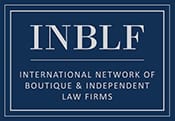Another Instructive Court Case, This One a Victory for Food Packagers
By Eric F. Greenberg, Attorney-at-law
October 2021
Another Instructive Court Case, This One a Victory for Food Packagers
A recent federal court decision gave a big boost to the FDA’s Generally Recognized As Safe (GRAS) rules. As with last month’s column, this one will examine this single case for its unique lessons.
This particular court decision rejected arguments that consumer advocates, and even a government oversight agency, have made for at least 11 years.
The plaintiffs objected to FDA’s 2016 rules that, confirming the longtime practice and legal framework, allow individual companies to declare their uses of substances in food to be GRAS, without any FDA oversight, approval, or even knowledge.
Although the case explicitly dealt with direct food ingredients, the same GRAS concepts support the legality of many packaging substances as well.
The arena here is the FDA program for dealing with food additives and related substances. FDA requires new uses of substances that are “food additives,” including food ingredients and packaging substances alike, to get FDA preclearance before they are used, but substances that are safe and enjoy general recognition as such among relevant experts, and are thus GRAS, are exempt from the definition of “food additives” and thus from that preapproval requirement.
The plaintiffs were several advocacy groups, including The Center for Food Safety and the Center for Science in the Public Interest.
The plaintiffs asserted that the result of FDA’s rules allowing independent GRAS conclusions, and allowing but not requiring companies to notify FDA of their conclusions, was that, they claim, there are lots of substances of unknown safety, unknown to FDA, being used in or in contact with the food supply.
Plaintiffs claimed the rule an “unlawful subdelegation” to food companies of FDA’s duty to assure the safety of food, was in excess of FDA’s authority and was “arbitrary and capricious,” and a violation of the Federal Food, Drug and Cosmetic Act.
The court disagreed, saying FDA’s actions in making the rules was none of those things. The FDA’s regulations set up a system that allows companies, if they so choose, to notify FDA that the company thinks its particular use of a substance is GRAS, thus that it isn’t a “food additive” and isn’t required to get FDA approval.
The plaintiffs said that Congress made it FDA’s job to assure the safety of the food supply, but that this system subdelegates that responsibility to food makers. On the contrary, the court noted that FDA retains the power to take enforcement actions against companies. “If the FDA has delegated anything at all to manufacturers, it is simply the ability to notify FDA of a GRAS determination, with which FDA can agree or disagree,” said the judge.
The judge further said he was not persuaded by arguments that FDA violated the U.S. Constitution “by adopting a voluntary notification system and allowing post-violation, instead of pre-violation enforcement.” The judge said Congress didn’t clearly indicate whether it would be OK for FDA to require companies to notify FDA about their GRAS conclusions. Also, he ruled that FDA’s interpretation (that they weren’t required) was reasonable.
The judge said that when it made these regulations, “FDA noted that GRAS substances were excluded from the food additive process, and it is entirely reasonable that FDA would view this as suggesting Congress intended GRAS substances to be treated differently because Congress itself had done so.”
This decision inspires some general observations about how the law and agencies interact. First, this kind of inquiry into the reasonableness of agency interpretations of unclear laws, and the related convention of upholding agency interpretations as long as they are reasonable (not a very strict standard), is one of the most controversial doctrines in federal law. That’s because it causes lots of agency decisions to be upheld. The Supreme Court might change that someday, (and Justice Neil Gorsuch has made clear he’s not a fan of so much power being held by regulators). But we’ll see.
Second, the judge’s key message to the plaintiffs was to tell them, “Take it to Congress,” essentially saying that if you want to see a change in a law because you think the current one creates an unsafe food supply, you gotta get Congress, not FDA or even a court, to do it. It’s common that regulatory agencies catch flak for the things they are doing, even though, often, they are doing what Congress instructed them to do because of the way it wrote the law.
Now, if the agency goes beyond the bounds of what Congress asked them to do, or interprets Congress’s law in some unreasonable way, then, sure, you have a valid complaint. But when you don’t like something an agency is doing, it’s often useful to ask if your real complaint is with Congress.
Is this the end of the objections to the GRAS program? Not necessarily. For one thing, the plaintiffs might appeal the decision to a federal appeals court, and after that, whoever loses might try taking the case to the U.S. Supreme Court. Also, Congress might change the law to require notice to FDA of GRAS uses of substances or to impose other measures that cut back on packagers’ independence. But for now, this decision in Center for Food Safety v. Becerra, 17-CV-3833 (U.S. District Court, Southern District of New York), is the big news in town. PW
Eric Greenberg can be reached at [email protected]. Or visit his firm’s Web site at www.ericfgreenbergpc.com.
INFORMATIONAL ONLY, NOT LEGAL ADVICE.


